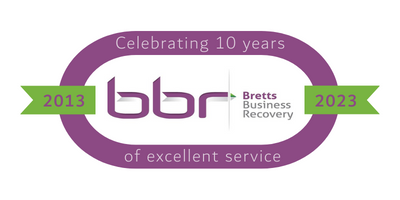Top 10 predictions for 2023

As Bretts Business Recovery celebrates 10 years of being in business, Managing Director Isobel Brett shares her Top 10 predictions for 2023:
Top 10 Predictions
- IVAs are becoming more popular as the 31stJan deadline has passed and people cannot pay their tax bill
Individual Voluntary Arrangements (IVAs) are legally binding agreements between debtors and their creditors that gives the debtor a fixed period of time to pay part or all of their debt. - Insolvency Practitioners will be busy as the knock-on effect of the cost-of-living crisis and the effect of strikes are felt
The sting of rising prices and lower productivity due to industrial action is a bad mix for businesses, particularly those who are already in troubled waters. - Company insolvencies will increase in 2023
As the UK heads towards recession, more businesses are likely to fail. Combined with HMRC taking a harder line against businesses that can’t pay their tax debt, we’re likely to see an increasing number of insolvencies this year. - Hospitality businesses will be at risk – especially those who did not make the usual level of profit over Christmas
The high street has declined over recent years, and fewer people have the disposable income to spend in the hospitality sector. Barclaycard reported a decline of 12.2% in restaurant spending in September 2022. Without the usual boost from Christmas festivities, some businesses will be caught short. - Construction companies will be hard hit.
The construction sector tops the list for the most compulsory liquidations in the last half of 2022. Material costs have been at an all-time high, (timber having increased 60% in some cases) and many construction firms are operating on invoiced finance. - Winding-up petitions will continue to increase as HMRC get through the backlog
HMRC’s efforts to clear the Covid-induced backlog and increase the issuance of new Winding-up petitions are resulting in a higher-than-normal number of winding-up petitions. - HMRC crack down on fraudulent or misused Bounce Back Loans
We have already seen a number of people prosecuted for fraudulently taking Bounce Back Loans, including the director of a telecoms company, who took a £25,000 loan and dissolved their company the next day. - Restructuring Plans – brought out at the same time as the Moratorium will be used more for SMEs (originally thought they would only be suitable for larger companies)
It was originally thought that Restructuring Plans would only be suitable for larger companies, due to the perceived costs, but as more data becomes available it appears it will be an effective tool for SMEs as well. - Repossessions are likely to increase as the cost of living takes its toll and remortgaging isn’t an option
Mortgage repossessions have nearly doubled between 2021 and 2022, and the primary culprits – inflation and the cost of living – aren’t becoming any less of an issue. - Hybrid working and offshoring will increase as companies aim to keep employment and overhead costs down
Expect to see a leaner, more agile workforce this year. Major tech companies have already begun large lay-offs, and more workers are being offered work from home as a benefit and a way to reduce overheads.